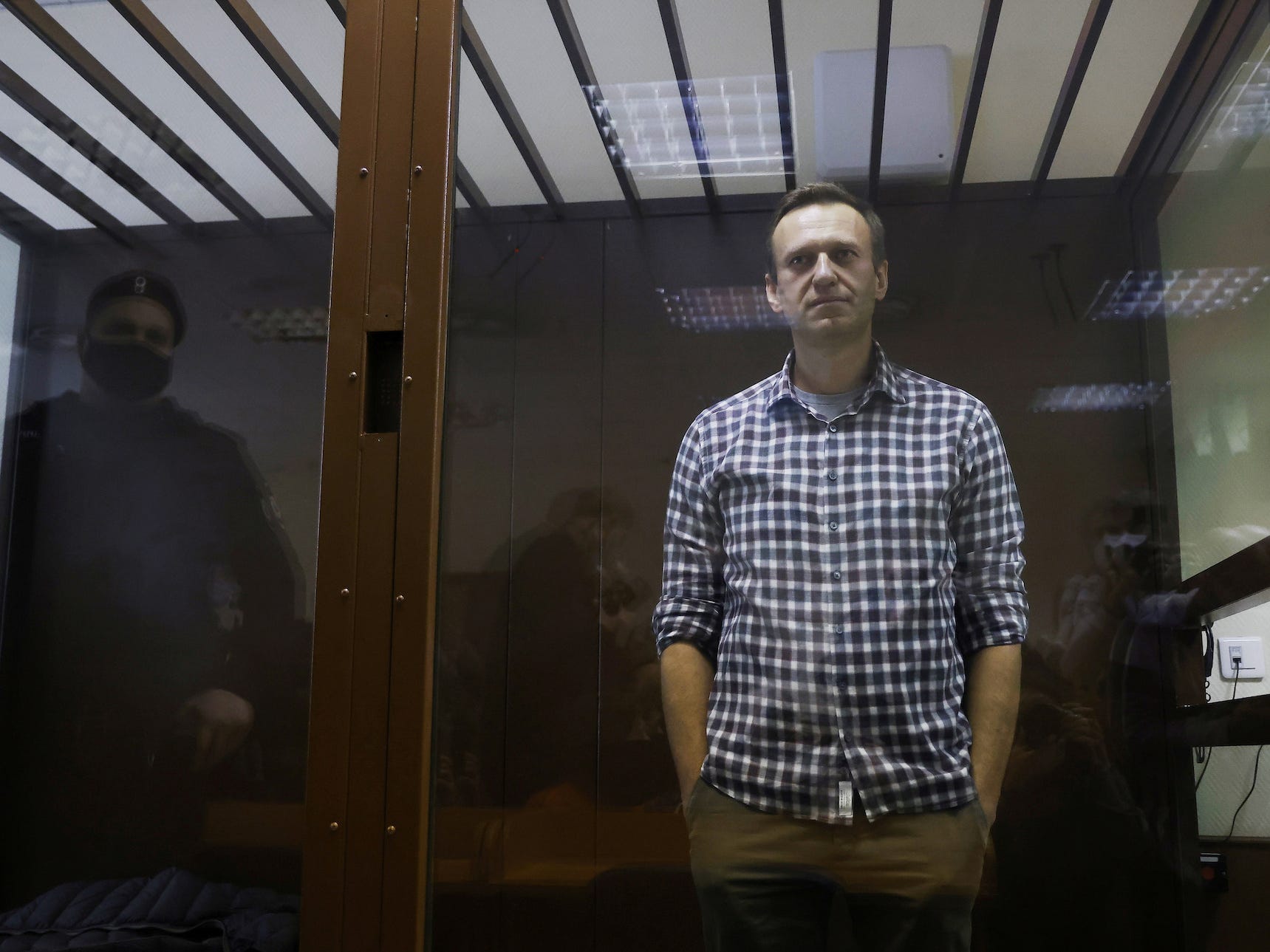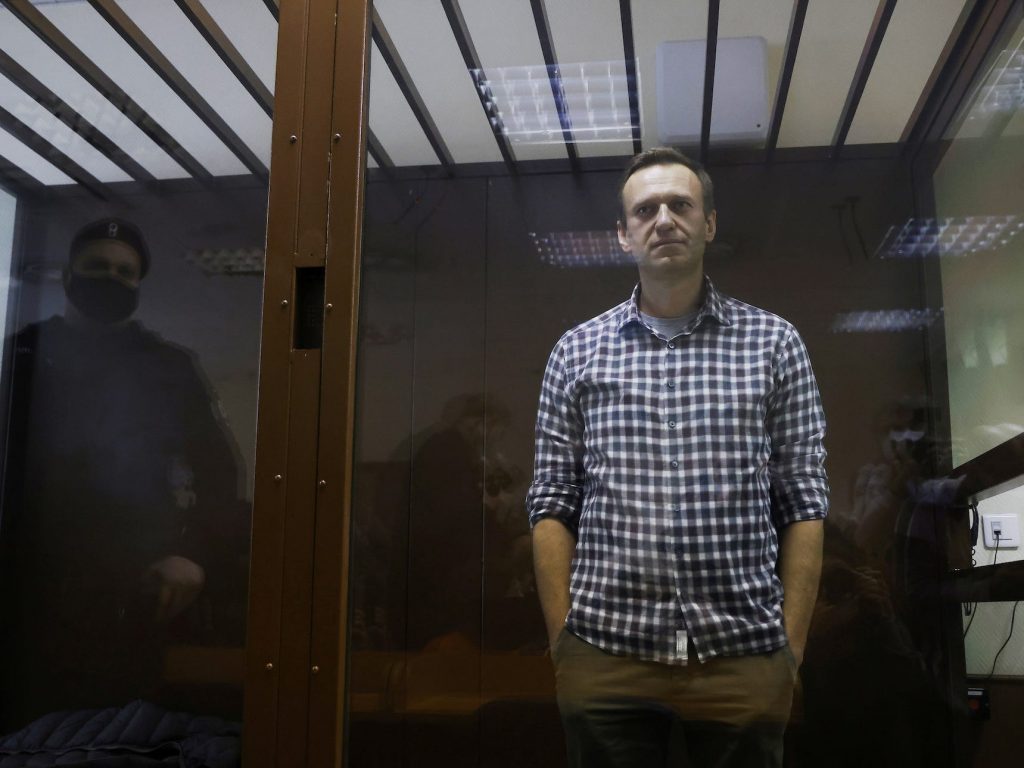
Maxim Shemetov/Reuters
- Jailed Putin critic Navalny said he's forced to watch over eight hours of Russian state TV and propaganda films each day.
- He told The New York Times that he spends time reading letters and sweeping the prison yard.
- Navalny in August was charged with with new crimes that could extend his sentence by three years.
- See more stories on Insider's business page.
Russian opposition leader and jailed President Vladimir Putin critic Aleksei Navalny said he is being forced to watch over eight hours of Russian state TV and propaganda films each day in what authorities refer to as "awareness raising," the New York Times reported.
The activity is meant to replace hard labor for Russia's political prisoners, Navalny said to The Times in his first interview with a news outlet since his January arrest.
"You have to sit in a chair and watch TV," he told the newspaper. Reading, writing or doing anything else is prohibited, Navalny claimed.
According to the report, Navalny spends much of his time in prison reading letters in his cell, sweeping the prison yard, and eating his meals.
"You might imagine tattooed muscle men with steel teeth carrying on with knife fights to take the best cot by the window," Navalny said of prison. "You need to imagine something like a Chinese labor camp, where everybody marches in a line and where video cameras are hung everywhere. There is constant control and a culture of snitching."
The Times reported Navalny criticized Europe and the US for economic sanctions on Russia, saying that they harmed ordinary Russians and suggested they should target top oligarchs who support Putin's regime.
Last week, German Chancellor Angela Merkel called for Putin to release Navalny from prison on the one-year anniversary of his near-fatal poisoning with the Soviet-era nerve agent Novichok.
Navalny had returned to Moscow in January from treatment for the poisoning in Germany and was promptly arrested.
Soon after, the anti-corruption campaigner was sentenced to two and a half years in prison for violating parole - including while he received treatment in Germany - from a 2014 embezzlement conviction that top human rights groups denounced as politically motivated.
Earlier this month, he was charged with new crimes that could extend his sentence by three years.
His arrest sparked mass protests across Russia and sanctions from Western powers.
Dit artikel is oorspronkelijk verschenen op z24.nl
